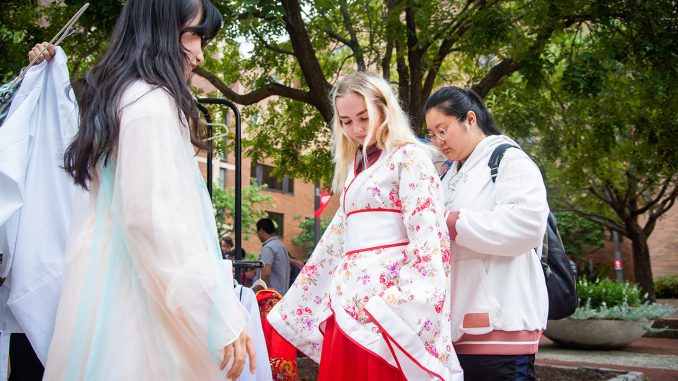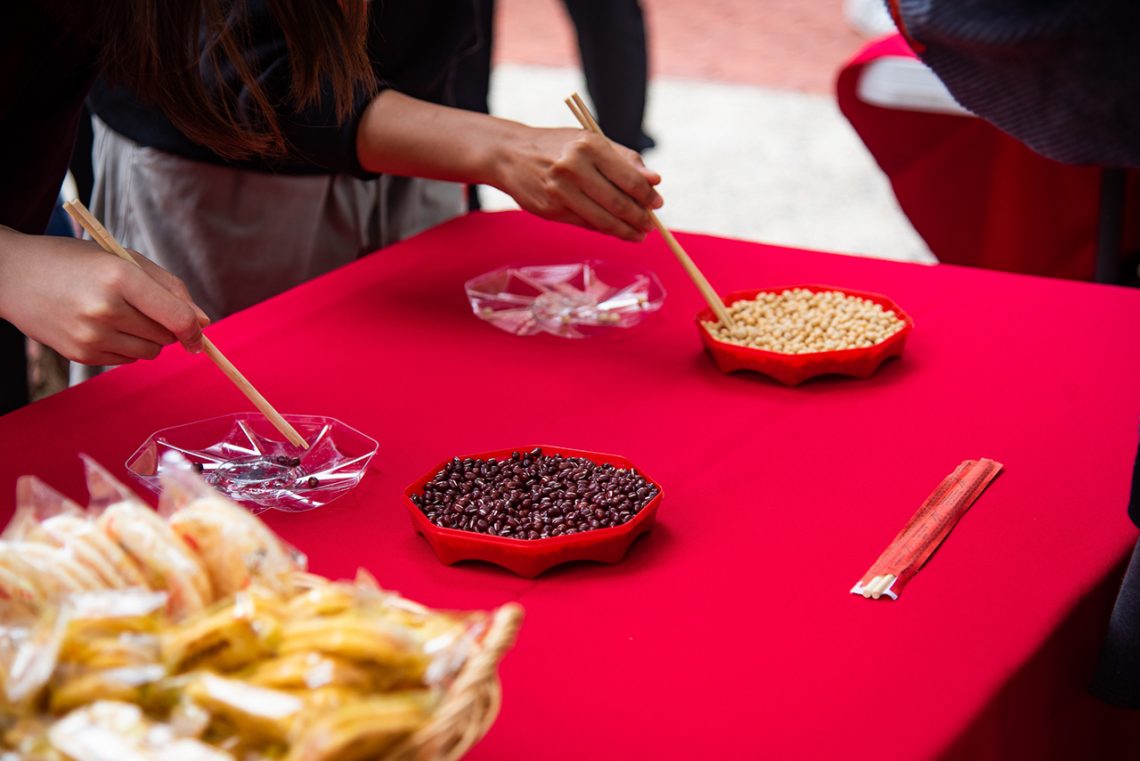
Maggie Zhang first celebrated the Mid-Autumn Moon Festival when she was 2 years old.
“When I was young and in China [the festival] was a big family party,” said Zhang, a first-year financial analysis graduate student. “People are always busy and don’t really have time to join together so it’s a specific time for family to celebrate.”
Zhang is the president of Temple’s Chinese Students and Scholars Association that helped host the Mid-Autumn Moon Festival celebration outside of Ritter Hall on Sept. 13. CSSA, along with the Confucius Institute, a non-governmental organization that helps to promote Chinese culture on campus, collaborated on the event.
The Mid-Autumn Moon Festival is a Chinese holiday that is celebrated on the 15th day of the eighth lunar month. It is believed that the full moon on this day is the brightest it is all year, Zhang said.
“When I came to the United States, I realized how traditional this holiday is, and I wanted to celebrate and introduce it to foreign students,” Zhang said. “It’s traditional Chinese culture.”
It is a family-oriented holiday that is about coming together with family and cooking and eating together, Zhang said.
At the celebration, the Confucius Institute provided attendees free Chinese cuisine, bubble tea and mooncakes —red bean and lotus seed treats — which are a traditional part of the celebration. Mooncakes are usually sweet or salty and round to represent the shape of the moon.
Students taught attendees multiple Chinese games and traditions like Mahjong, Chinese chess, Chinese yo-yo and Chinese calligraphy. Attendees were also able to try on traditional Chinese robes and costumes.
Zhang said she became president of CSSA because she was interested in helping Chinese students become comfortable and well-adjusted to life at Temple.

When she came to the United States as a 10th grader, she was alone and remembered needing help and support from friends, she added.
“It’s painful not knowing the language [and] society, and it’s really different,” Zhang said. “I want to help students and make them feel that they have friends and family here at Temple.”
The Confucius Institute was lauched at different place in the U.S. in 2005, and opened its branch at Temple in spring 2015. The Institute plans activities that promote Chinese culture, language and inclusion on campus. They also organize free Chinese language courses to students, talks on daoist scriptures, weekly Chinese tea time and game nights.
The Institute’s co-director, a festival is historically associated with many myths: a goddess of the moon who took a pill of immortality, a noble rabbit who was placed on the moon, a man who chops down a tree and a variety of others, said Louis Mangione, co-director of the Confucius Institute.
Customs and stories of the myths vary depending on the region of China, Mangione added. Mangione said a lot of people who are not able to celebrate with friends and family often feel very homesick, he said.
“We felt that it would be good to use this as an opportunity to get people familiar with the culture,” he said.
Holly Meng, director of the Office of Executive Leadership Education at Temple’s Center City Campus and CSSA faculty adviser, has helped them host the event for the past four years.
The Mid-Autumn Moon Festival is the second most important holiday outside of Chinese New Year, and no matter how far away you are from your family, people can look at the same full moon that their family is enjoying together and think of their loved ones, Meng said.
“When we were little, we celebrated and waited for the moon to come out,” she added. “We hope students can feel the same way at Temple. You have family here that you can still celebrate with, even if your family is far away in China.”



Be the first to comment